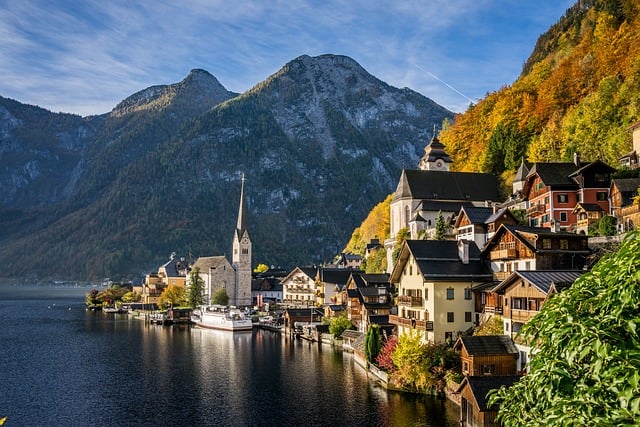Austria, a country steeped in history and culture, offers a unique blend of traditional customs and modern influences. For newcomers, understanding Austrian culture and traditions is key to integrating smoothly into society and appreciating the rich heritage that defines this Central European nation. This guide provides an in-depth look at Austrian culture, traditions, and social norms to help you navigate your new life in Austria.
1. Historical and Cultural Overview
Austria’s culture has been shaped by its history as the heart of the Habsburg Empire, its central location in Europe, and its contributions to art, music, and philosophy. The country is often referred to as the “Land of Music” due to its association with legendary composers like Wolfgang Amadeus Mozart, Ludwig van Beethoven, and Franz Schubert.
- Multicultural Influence: Austria’s history as a multicultural empire has left a lasting impact on its culture, with influences from neighboring countries such as Germany, Italy, Hungary, and the Czech Republic.
- Vienna: The capital city, Vienna, is a cultural hub known for its imperial palaces, museums, and vibrant arts scene.
2. Language and Communication
While German is the official language of Austria, there are distinct regional dialects and variations that set Austrian German apart from standard German.
- Austrian German: Austrian German includes unique vocabulary, pronunciation, and expressions. For example, “Grüß Gott” (God’s greeting) is a common way to say hello.
- English Proficiency: Many Austrians, especially in urban areas, speak English fluently. However, learning basic German phrases can go a long way in building rapport and navigating daily life.
- Politeness: Austrians value politeness and formal communication. It’s customary to use titles such as “Herr” (Mr.) and “Frau” (Mrs.) followed by the surname when addressing someone.
3. Social Etiquette and Customs
Understanding Austrian social norms and etiquette is essential for building positive relationships and avoiding cultural misunderstandings.
- Punctuality: Austrians place a high value on punctuality. Arriving on time for appointments, meetings, and social gatherings is considered a sign of respect.
- Greetings: A firm handshake with direct eye contact is the standard greeting. In more informal settings, close friends may greet each other with a kiss on both cheeks.
- Dining Etiquette: When invited to an Austrian home, it’s customary to bring a small gift, such as flowers or wine. During meals, keep your hands visible on the table and wait for the host to start eating before you begin.
4. Traditional Festivals and Celebrations
Austria is known for its vibrant festivals and traditions, many of which have deep historical roots.
- Christmas Markets (Weihnachtsmärkte): During the Advent season, cities and towns across Austria host Christmas markets, where visitors can enjoy mulled wine, traditional crafts, and festive decorations.
- Vienna Opera Ball: Held annually at the Vienna State Opera, this prestigious event is a highlight of the social calendar, featuring elegant ballroom dancing and classical music.
- Fasching: Austria’s carnival season, known as Fasching, is celebrated with parades, costumes, and parties in the weeks leading up to Lent.
- National Day (Nationalfeiertag): Celebrated on October 26, this public holiday commemorates Austria’s declaration of permanent neutrality in 1955. Festivities include open days at government buildings and cultural events.
5. Austrian Cuisine
Austrian cuisine is hearty and flavorful, with dishes that reflect the country’s agricultural heritage and regional diversity.
- Wiener Schnitzel: A breaded and fried veal cutlet, often served with potato salad or parsley potatoes.
- Sachertorte: A famous Viennese chocolate cake with a layer of apricot jam, traditionally served with whipped cream.
- Apfelstrudel: A delicious pastry filled with spiced apples, raisins, and breadcrumbs, often enjoyed with a cup of coffee.
- Coffee Culture: Austria’s coffeehouse culture is a UNESCO-recognized intangible cultural heritage. Coffeehouses are social hubs where people gather to enjoy coffee, pastries, and conversation.
6. Arts and Music
Austria’s contributions to the arts and music are unparalleled, making it a cultural haven for enthusiasts.
- Classical Music: Austria is the birthplace of many classical composers, and its concert halls and opera houses, such as the Vienna State Opera and Salzburg Festival, are world-renowned.
- Visual Arts: Austria has a rich tradition of visual arts, from the works of Gustav Klimt and Egon Schiele to contemporary artists. Museums like the Belvedere and the Albertina showcase these masterpieces.
- Theater and Literature: Austrian theater and literature have a long and distinguished history, with figures like Arthur Schnitzler and Thomas Bernhard making significant contributions.
7. Outdoor Activities and Nature
Austria’s stunning natural landscapes offer endless opportunities for outdoor activities.
- Alpine Sports: The Austrian Alps are a paradise for skiing, snowboarding, hiking, and mountaineering. Popular destinations include Tyrol, Salzburg, and Vorarlberg.
- Lakes and Rivers: Austria’s lakes, such as Lake Wolfgang and Lake Neusiedl, are ideal for swimming, boating, and relaxing. The Danube River offers scenic bike paths and river cruises.
- National Parks: Austria’s national parks, including Hohe Tauern and Gesäuse, are perfect for exploring diverse flora and fauna.
8. Practical Tips for Newcomers
- Learn the Language: While many Austrians speak English, learning German will help you integrate more effectively and deepen your understanding of the culture.
- Respect Local Customs: Be mindful of Austrian traditions and social norms, such as punctuality and formal greetings.
- Explore the Country: Take the time to explore Austria’s diverse regions, from its bustling cities to its picturesque countryside.
- Join Community Groups: Participating in local clubs, expat groups, or cultural events can help you build connections and feel more at home.

اترك تعليقاً